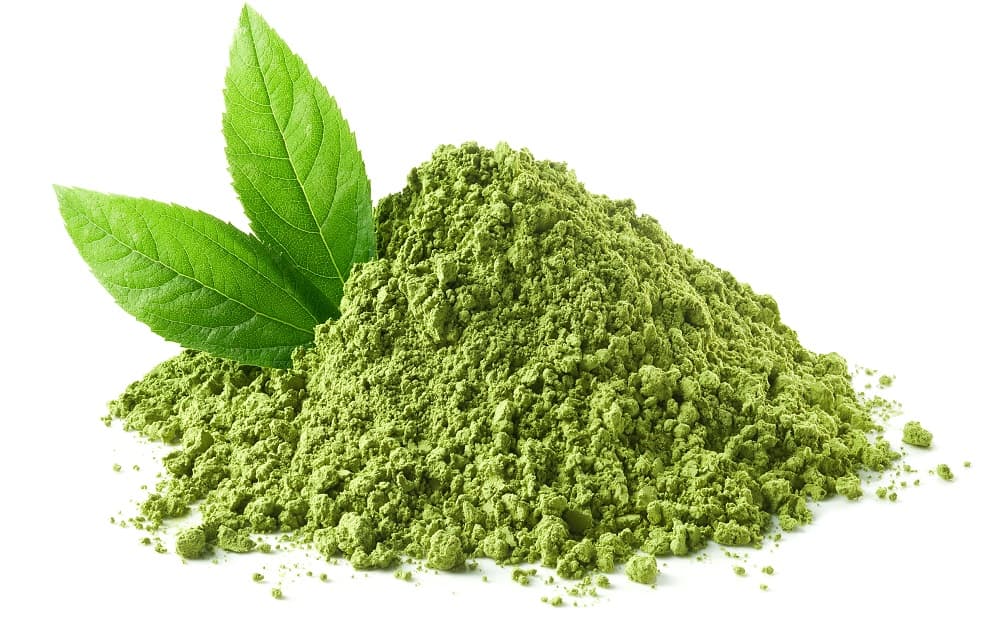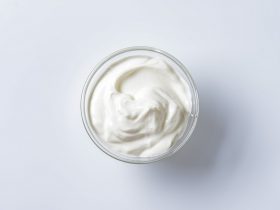During pregnancy, there are numerous restrictions recommended by medical doctors to avoid risk and ensure proper growth and development for the unborn baby. While some of these restrictions are physical activities (e.g., contact sports, heavy lifting, etc.), some of them are dietary. Matcha tea is a popular beverage around the world, but is it safe to drink while pregnant?
During pregnancy, it is highly recommended to avoid caffeine consumption as much as possible. Studies have linked maternal caffeine consumption from coffee and tea with adverse health risks for the infant. Some studies recommend a safe limit of fewer than 300 milligrams of caffeine per day. However, others say that beyond 100-150 milligrams of caffeine a day, potential risks to the infant could also be seen.
Is Matcha Tea Safe for Pregnant Women?
Essentially, the main concern against matcha tea during pregnancy is the caffeine content. Kochman et al. (2021) characterized the chemical composition of matcha and reports that matcha tea inherently contains more caffeine than typical green teas and most coffees. Matcha tea can have caffeine content anywhere between 18.9 to 44.4 mg per gram of tea powder, while other green teas can have 11.3 to 24.67 mg per gram of tea powder, and most coffee beans can contain 10 to 12 mg of caffeine per gram of beans.
A cup of matcha tea can be prepared with one teaspoon (approximately 4 grams) of matcha powder. Therefore, one cup can contain 75.6 to 177.6 mg of caffeine. This amount is below the recommended limit of 200 mg of caffeine per day for pregnant women.
However, given the the evidence for risk of caffeine-related harm (outlined below) to the baby at any given limit of caffeine intake, it is still best to avoid coffee or tea as much as possible throughout pregnancy. If a pregnant woman has any compulsive reason to drink matcha tea, one cup should be more than enough.
Matcha Tea

Matcha is a type of green tea that is processed differently compared to the typical green tea . Coming from the same species of the tea plant, Camellia sinensis, matcha is produced by growing the plant specifically in a shaded area for 3-4 weeks before harvest. Growing in the shade, the plant has been observed to produce more chlorophyll and theanine (the component that provides umami flavor to tea). Once the finest leaves are harvested, they are then rolled up, dried, and finely ground into a bright green powder.
Matcha is usually prepared by suspending the matcha powder in water or milk. Matcha specifically comes in powdered form, unlike other green teas that can be prepared using tea bags or loose tea leaves. Commercial matcha tea has been commonly classified into grades to indicate quality.
Cooking or culinary grade matcha is the cheapest and is recommended to be used as an ingredient (e.g., smoothies, shakes, etc.), rather than as the primary component. Culinary grade matcha might present some slightly bitter flavors from being harvested from inferior plants. Considerably more expensive, premium grade matcha is processed from high-quality leaves; This is the grade that is recommended for matcha tea drinkers.
Some markets also label their matcha as ceremonial grade, suggesting that the quality is appropriate for tea ceremonies and Buddhist temples. However, this grade is only recognized in markets outside of Japan.
Caffeine in Pregnant Women
Matcha tea is primarily a concern for pregnant women due to its caffeine content. Caffeine is highly restricted in pregnant women due to the numerous studies showing the harmful effects of caffeine on pregnant women and their babies.
Caffeine is a natural stimulant that can be found in a wide array of sources, such as tea, coffee, soda, and energy drinks. Regarded as the world’s most consumed psychoactive drug, caffeine blocks adenosine receptors which are responsible for making people feel drowsy. Aside from keeping consumers awake, caffeine has also been observed to stimulate certain portions of the autonomic nervous system.

Caffeine intake during pregnancy is associated with abortion, preterm delivery, and fetal growth restriction. However, evidence remains inconclusive (Wierzejska et al., 2019).
Fenster et al. in 1991 demonstrated that women who heavily consume caffeine (greater than 300 mg per day) were more likely to have babies with low birth weight and intrauterine growth retardation. However, no relation between caffeine consumption and preterm birth was found.
Some studies have shown that 300 mg of caffeine a day should be safe. Others say that caffeine intake during pregnancy is recommended to be limited to 200 mg per day. (Wierzejska et al., 2019).
Jarosz et al. in 2011 investigated 509 women. Their statistical analysis showed that 98.4% of pregnant women consumed no more than 300 mg of caffeine per day. This limit of intake did not exhibit any association with risk of premature birth, low birthweight, or low Apgar score of newborns.
Likewise, Wierzejska et al. (2019) showed that mean caffeine intake in pregnant women was 68 ± 51 mg per day. No association was found between consumption of caffeine during pregnancy and neonatal anthropometric measurements like weight, length, or head and chest circumference.
However, according to the British Medical Journal (BMJ) published in 2008, caffeine intake throughout pregnancy increased the risk of fetal growth restriction. Over 2,500 pregnant women from UK participated in this prospective longitudinal observational study. Final results revealed that birth weights were lower among infants of mothers who consumed caffeine during pregnancy, across different levels of intake.
Compared with pregnant women who consumed <100 mg of caffeine per day, fetal growth restriction was more frequent in those who consumed amounts of 100-199 mg per day, 200-299 mg per day, and more than 300 mg per day of caffeine (BMJ, 2008).
Van der Hoeven in 2017 investigated about antenatal caffeine intake from tea consumption. They found that increased consumption of tea during pregnancy is a possible risk for pregnancy induced hypertension.
Lastly, intake of caffeinated beverages during pregnancy may also play a role in the development of childhood malignant central nervous system (CNS) tumors in their offspring. As demonstrated by Plichart et al. in 2008, consumption of more than 1 cup of tea per day during pregnancy has a strong positive association with CNS tumors in children.
Health Benefits of Matcha Tea
Rich in a wide array of active compounds, numerous studies have shown that matcha green tea is able to confer multiple health benefits. These health benefits can include anti-carcinogenic effects, anti-inflammatory effects, cardioprotective effects, antiviral properties, carbohydrate metabolism regulation, and much more.
Along with nuts and seeds, matcha tea has been recognized as a mood-and-brain food – food that has been observed to elevate mood states and improve cognitive performance. Dietz et al. in 2017 investigated these effects of matcha tea both in drink and snack forms. The study found that matcha tea consumption was able to improve cognitive performance, in terms of basic attention abilities and psychomotor speed response to stimuli. However, there was no effect in mood state of the participants.
Attributed to the increased theanine levels, matcha tea has been studied to be able to reduce stress. Unno et al. (2018) investigated the effects of matcha tea in stress reduction in both mice and humans. Despite the antagonistic activity of caffeine to theanine, the study was able to conclude that experimental groups that consumed matcha tea showed less signs of stress compared to control groups.
Matcha tea can aid individuals aiming to lose weight. Willems et al. (2018) studied the effects of matcha tea consumption on fat oxidation. They found that consuming matcha tea drinks enhanced fat oxidation in women during brisk walking. Furthermore, the participants were also found to have a lower respiratory exchange ratio, which means that matcha tea consumption increased oxygen metabolism efficiency.
Numerous studies also investigated the potential of matcha green tea as an anticarcinogenic agent. Kochman et al. in 2021 said that the anticarcinogenic mechanisms of matcha tea are related to inhibition of tumor angiogenesis, its antioxidant properties, and suppression of inflammatory processes that contribute to hyperproliferation and beginning of carcinogenesis.
It has been previously demonstrated that epigallocatechin-3-gallate showed anti-tumor properties against breast cancer. Green tea also showed protective effects from colorectal adenomas and positive benefits for reduction of risk of acute myeloid leukemia and prostate cancer (Bonuccelli et al., 2018).
Bonuccelli et al. in 2018 investigated the effects of matcha green tea on the proliferation of breast cancer cells. Their results showed that matcha tea is effective in inhibiting the propagation of cancer stem cells, which are involved in tumor recurrence, metastasis and chemotherapy and radiotherapy failure.
Alongside cancer research, research groups have likewise investigated matcha tea for its antioxidant properties. It is characterized by high content of polyphenol compounds, including flavanols, flavandiols and phenolic acids, which constitute up to 30 percent of its dry mass. However, these contents depend on the type, quantity, temperature and time of brewing of the tea (Jakubczyk et al., 2020).
The polyphenolic compounds flavanols are also more commonly known as catechins. Catechins in matcha tea have the ability to neutralize free radicals and boost the detoxification activity of enzymes like glutathione peroxidase, catalase and glutathione reductase. Green teas have much higher catechin content, amounting to 5.46 to 7.44 mg/g, compared to black teas which only have up to 3.47 mg/g (Kochman et al., 2021).
Caffeine in matcha tea is also a powerful antioxidant. In regular doses, caffeine can help in reduction of persistent oxidative stress by neutralizing reactive oxygen species and enhancing enzyme antioxidant activity and total glutathione levels. In addition, caffeine may have anti-inflammatory effects by inhibiting the secretion of proinflammatory cytokines (Kochman et al., 2021).
Final Thoughts
It is normal for pregnant women nowadays to be wary about the activities they do and the food they eat. Regarding matcha tea, numerous studies have concluded that the main concern with this drink is its caffeine content.
Caffeine has been associated with health risks for the fetus. Although there is a recommended “safe” limit of caffeine consumption, it is clear that it can still pose certain risks for the child.
The American Pregnancy Association (APA) recommends pregnant women to limit their intake of caffeine as much as possible. This is the safest suggestion to remember when you’re compelled to have your matcha tea. Talk to your doctor to find the best way to go around your cravings without sacrificing your baby’s health.
References
- https://www.medicalnewstoday.com/
- https://www.sciencedirect.com/
- https://www.mdpi.com/
- https://www.sciencedirect.com/
- https://www.mdpi.com/
- http://eprints.chi.ac.uk/
- https://www.ncbi.nlm.nih.gov/
- https://americanpregnancy.org/
- Jakubczyk, K., Kochman, J., Kwiatkowska, A., Kaldunska, J., Dec, K., Kawczuga, D., & Janda, K. (2020). Antioxidant properties and nutritional composition of matcha green tea. Foods 9(4), 483. doi: 10.3390/foods9040483
- Kochman, J., Jakubczyk, K., Antoniewicz, J., Mruk, H., & Janda, K. (2021). Health benefits and chemical composition of matcha green tea: A review. Molecules 26(1), 85. doi: 10.3390/molecules26010085
- Bonuccelli, G., Sotgia, F., & Lisanti, M. (2018). Matcha green tea (MGT) inhibits the propagation of cancer stem cells (CSCs), by targeting mitochondrial metabolism, glycolysis and multiple cell signalling pathways. Aging 10(8), 1867-1883. doi: 10.18632/aging.101483
- Dietz, C., Dekker, M., & Piqueras-Fiszman, B. (2017). An intervention study on the effect of matcha tea, in drink and snack bar formats, on mood and cognitive performance. Food Research International 99(1), 72-83. DOI: 10.1016/j.foodres.2017.05.002
- Unno, K., Furushima, D., Hamamoto, S., Iguchi, K., Yamada, H., Morita, A., Horie, H., & Nakamura, Y. (2018). Stress-reducing function of matcha green tea in animal experiments and clinical trials. Nutrients 10(10), 1468. https://doi.org/10.3390/nu10101468
- Willems, M., Şahin, M., & Cook, M. (2018). Matcha green tea drinks enhance fat oxidation during brisk walking in females. International Journal of Sports Nutrition and Exercise Metabolism 28(5), 536-541. DOI: 10.1123/ijsnem.2017-0237
- Van der Hoeven, T., Browne, J., Uiterwaal, C., Van der Ent, C., Grobbee, D., & Dalmeijer, G. (2017). Antenatal coffee and tea consumption and the effect on birth outcome and hypertensive pregnancy disorders. PLoS One 12(5), e0177619. doi: 10.1371/journal.pone.0177619
- Wierzejska, R., Jarosz, M., & Wojda, B. (2019). Caffeine intake during pregnancy and neonatal anthropometric parameters. Nutrients 11(4), 806. doi: 10.3390/nu11040806
- Plichart, M., Menegaux, F., Lacour, B., Hartmann, O., Frappaz, D., Doz, F., …, & Clavel, J. (2008). Parental smoking, maternal alcohol, coffee and tea consumption during pregnancy and childhood malignant central nervous system tumours: The ESCALE study (SFCE). European Journal of Cancer Prevention 17(4), 376-383. doi: 10.1097/CEJ.0b013e3282f75e6f
- Fenster, L., Eskenazi, B., Windham, G., & Swan, S. Caffeine consumption during pregnancy and fetal growth. American Journal of Public Health 81(4), 458-461. doi: 10.2105/ajph.81.4.458
- Maternal caffeine intake during pregnancy and risk of fetal growth restriction: A large prospective observational study. (2008). British Medical Journal, 337. doi: https://doi.org/10.1136/bmj.a2332
- Jarosz, M., Wierzejska, R., & Siuba, M. (2011). Maternal caffeine intake and its effect on pregnancy outcomes. European Journal of Obstetrics and Gynecology and Reproductive Biology 160(2), 156-160. doi: https://doi.org/10.1016/j.ejogrb.2011.11.021




